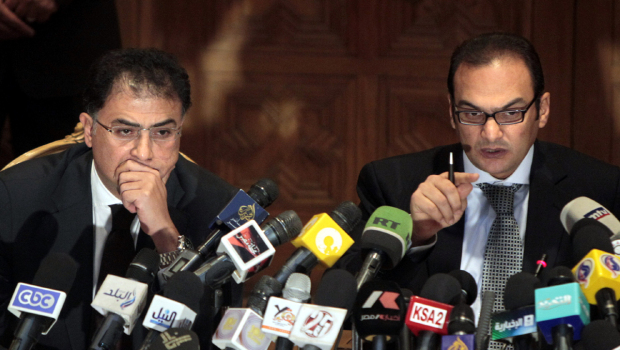
On February 15, 29 Egyptian civil society organizations issued a scathing denunciation of the government’s "politically motivated" legal assault on 43 NGO employees, debunking the myth — put forward by Minister of International Cooperation Fayza Aboul Naga and other architects of the crackdown — that Egyptians overwhelmingly view foreign-funded NGOs as a threat to national sovereignty and stability. Contradicting the prevailing wisdom, the joint NGO statement — issued by the Cairo Institute for Human Rights Studies (CIHRS) in English and Arabic — asserts, "The unethical conspiring against Egyptian civil society is in no way a national objective or in the national interest."
Although a new Gallup poll released last week found that 71 percent of Egyptians oppose US economic aid to their country, and a similar percentage oppose Washington sending direct aid to civil society groups, the new joint NGO statement sends a powerful message of Egyptian outrage with "the ongoing slandering and intimidation of civil society organizations," including those that receive foreign funding. The Egyptian NGO community’s display of solidarity with international groups targeted by the judicial inquiry lends legitimacy to growing concerns over an investigation that is clearly being driven by political motivations. The signatories of the joint statement challenged the integrity and validity of the NGO proble on several grounds:
- The supposedly independent judiciary is in fact controlled by Egypt’s government: Despite the Egyptian efforts to portray the current investigation as an independent and transparent judicial inquiry, the Egyptian judiciary’s loyalty to the regime is well-recognized: "The investigations are taking place in a government office (the Justice Ministry), and the two investigating judges were handpicked by the president of the Cairo Appellate Court," the statement notes.
- Raids on NGO offices were violated Egyptian law: Despite the Egyptian government’s claim that the raids on several Egyptian and international NGO offices in December were legal search authorized by the judiciary, in fact, the raids and seizure of files and computers was unlawful. Furthermore, the manner in which these items were confiscated — without being documented in any official reports — could permit the fabrication of evidence.
- Violation of confidentiality rules: Public statements by government ministries and investigating judges to the media in recent months have amounted to a "one-sided trial in the media," clearly undermining the neutrality of the judicial probe. According to the NGO statement, "This is a flagrant violation of the law and investigation rules, which require investigators and others connected to the case to maintain the confidentiality of the proceedings and findings, under Article 75 of the Code of Criminal Procedure."
- Picking Fights with Foreign Allies is Unproductive: Finally, the NGO statement criticizes the Egyptian government for provoking and escalating a crisis with the United States over its funding of NGOs in Egypt, pointing out that the resulting diplomatic fallout has diverted attention from pressing domestic concerns, including a legal culture of impunity for public officials and security personnel accused of harming citizens and violating their human and political rights. "The orchestration of fictitious battles with other states to distract attention from the catastrophic failure of the political administration and from the daily massacre of Egyptians without accountability … cannot in any way be a national objective. Rather, it serves the interest of a small faction that seeks to seize power and wealth without accountability or oversight."
This scathing criticism from some of the most reputable organizations in Egypt should be a wake-up call to the SCAF and interim government: The politically motivated investigation of NGOs is not only destructive to relations with the United States and its organizations in Egypt; it is also a direct assault on Egyptian citizens and an insult to domestic demands for justice and the development of democratic institutions.
Mara Revkin is the assistant director of the Rafik Hariri Center for the Middle East and editor of EgyptSource. She can be reached at mrevkin@acus.org.
Image: egypt_judges_sameh_abu_zeid_ashraf_ashmawi_AP12020816222_fullwidth_620x350.jpg
